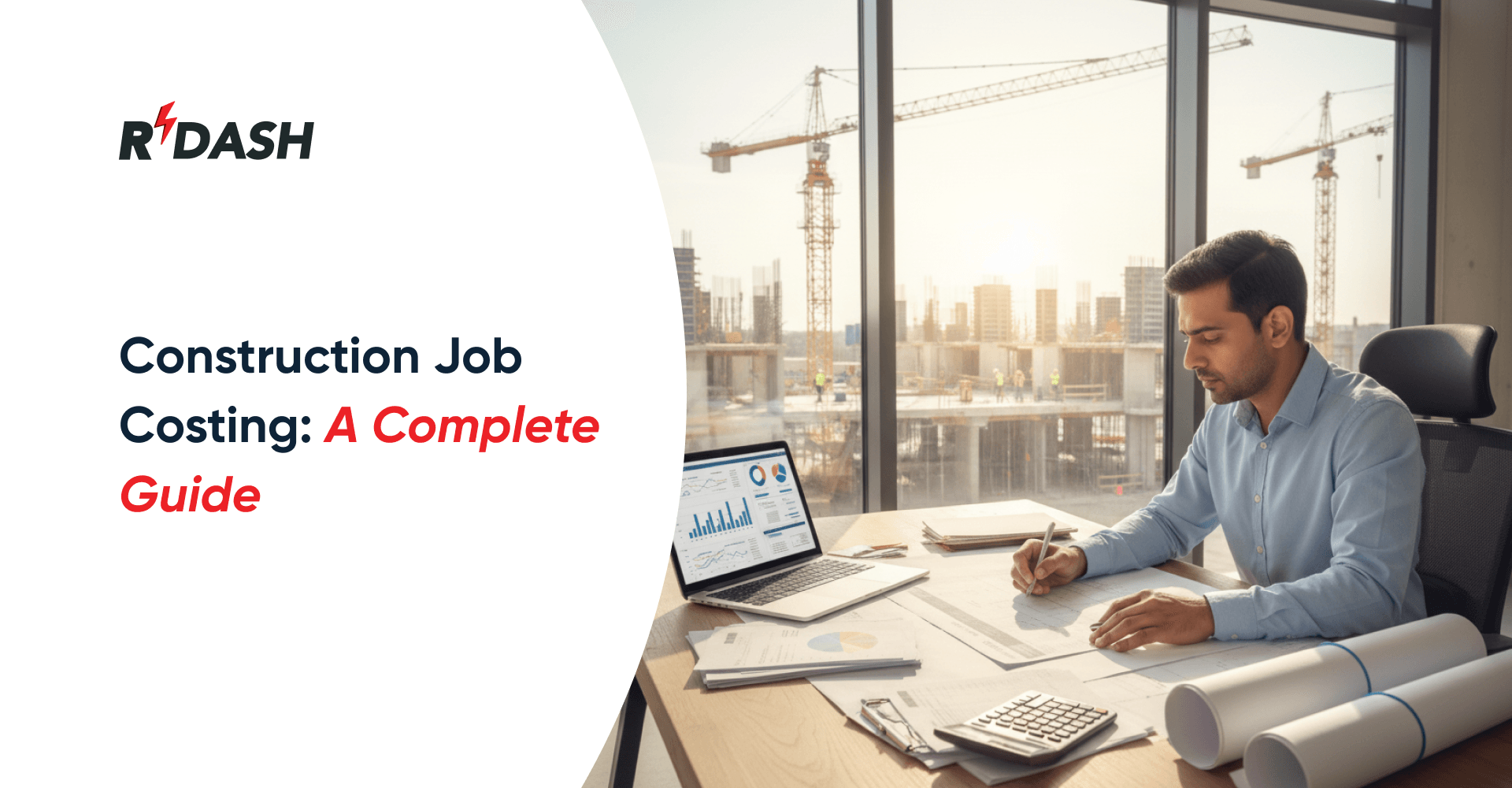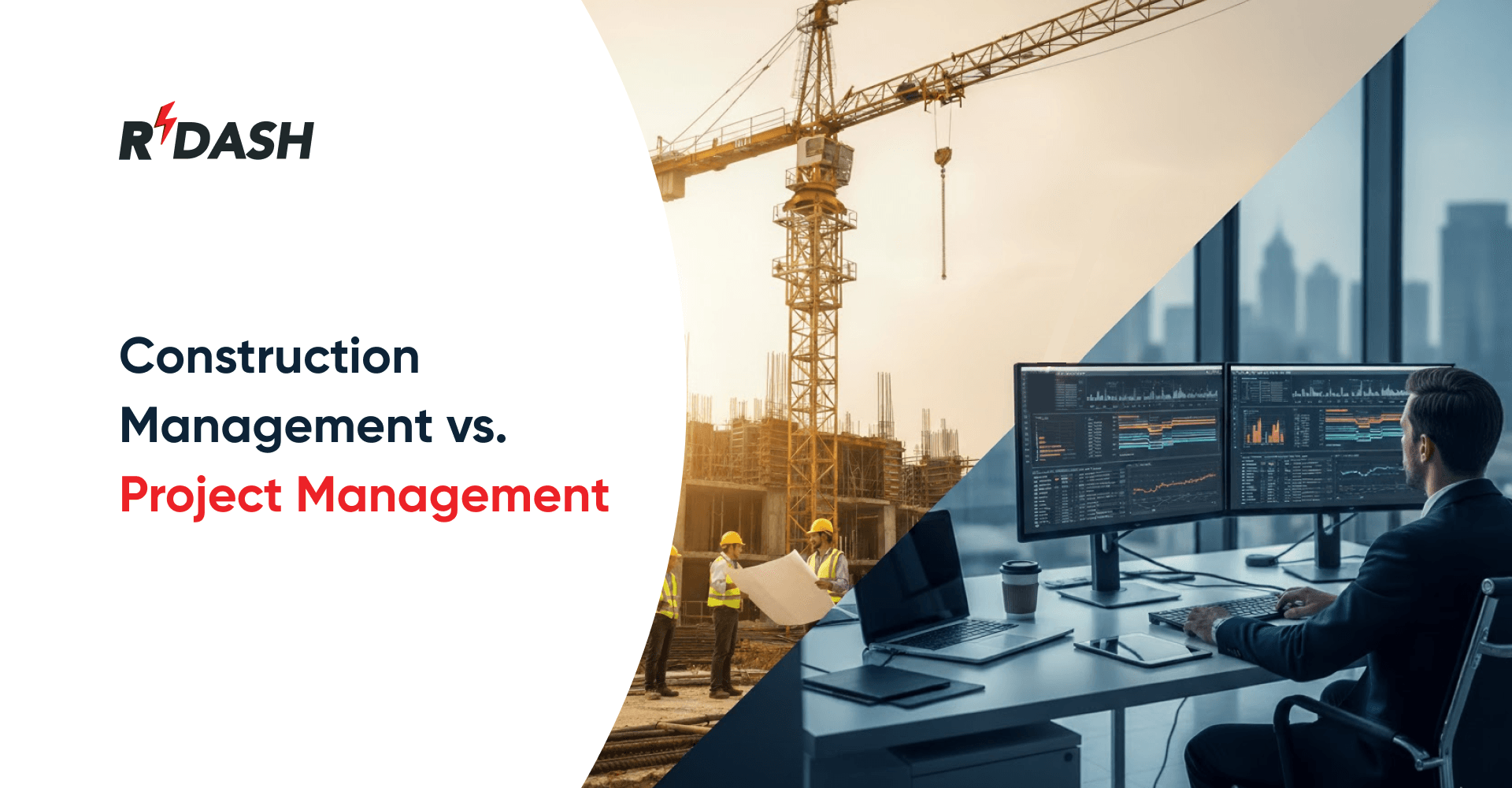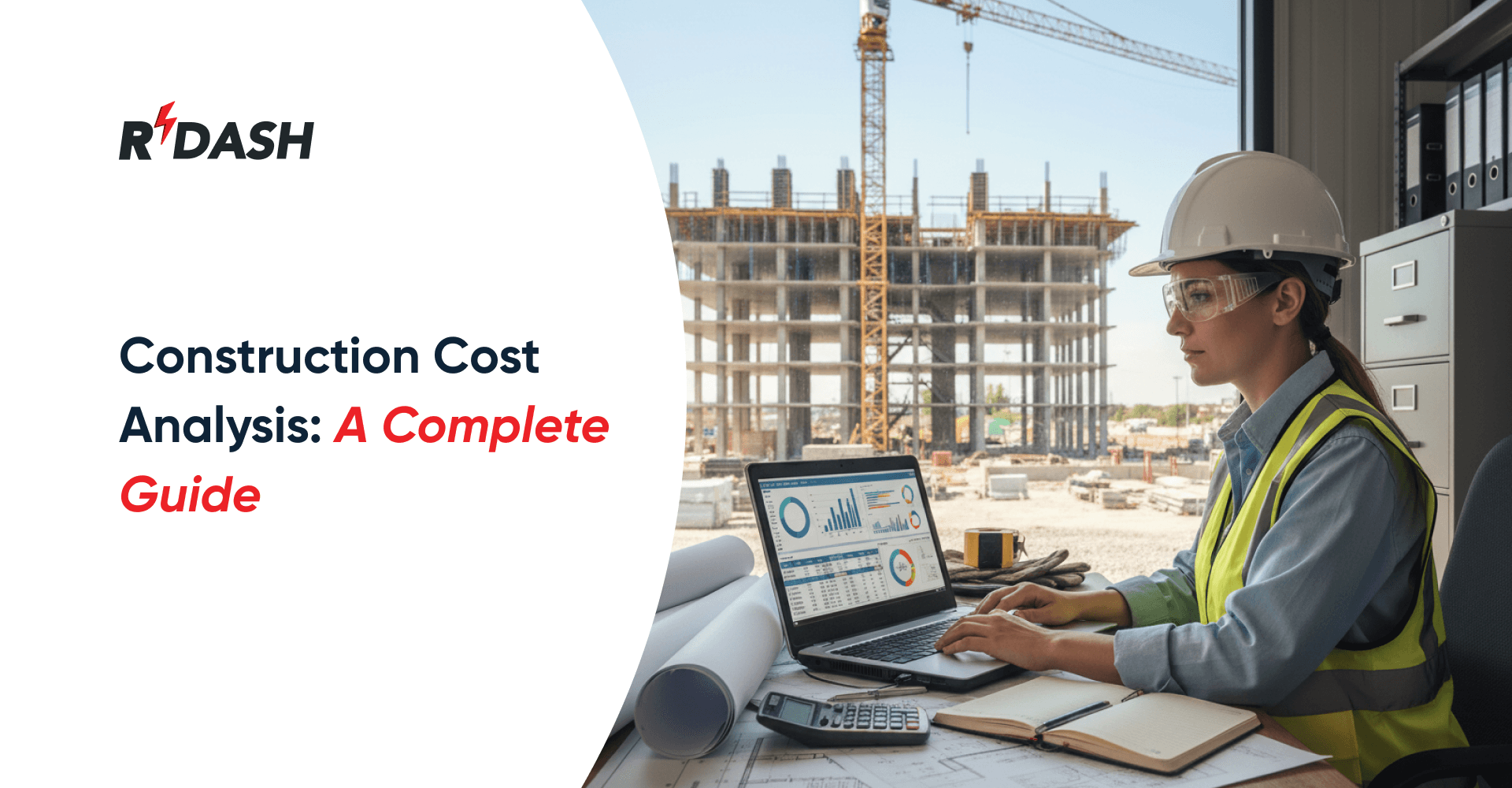Who Are Construction Project Managers?
A Construction Project Manager (CPM) is a professional who is responsible for overseeing and managing construction projects from start to finish. They make sure the project is completed efficiently, on schedule, and within the allocated budget. CPMs are the key individuals who handle all aspects of a construction project, from planning to completion.
Construction Project Manager’s Responsibilities
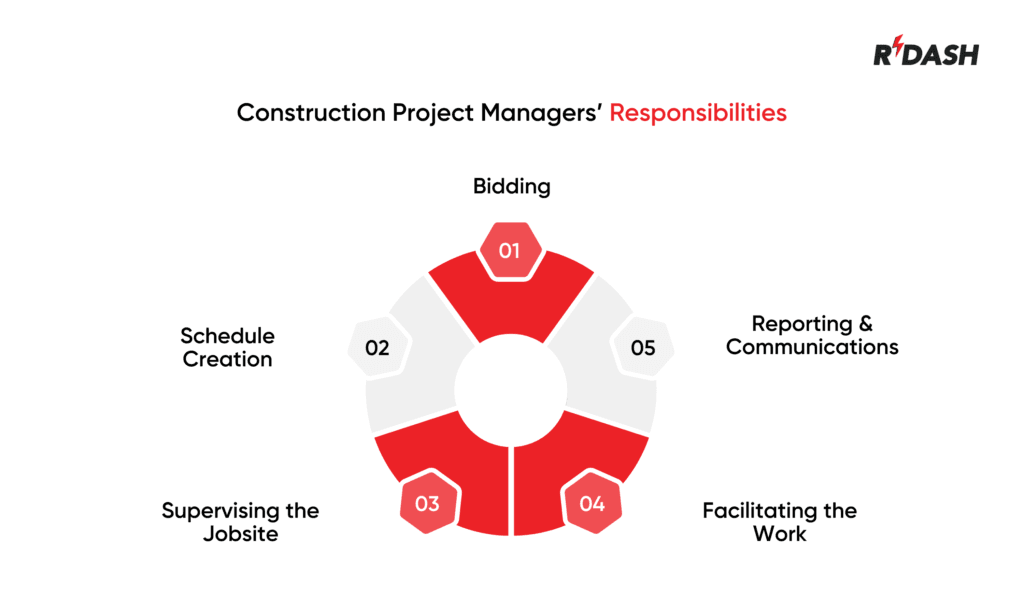
Bidding
One of the first tasks of a construction project manager is handling the bidding process. They gather quotes from contractors and suppliers, ensuring that the project will be completed at the best possible price without sacrificing quality.
Schedule Creation
CPMs take charge of developing a comprehensive timeline for the project. This includes setting start and end dates for different phases, assigning tasks to workers, and making sure that the project moves forward according to plan.
Supervising the Jobsite
A major part of the CPM’s role is supervising the jobsite. They ensure that all workers follow safety guidelines, and they make sure that the construction site is running efficiently. They monitor the progress and address any issues that may arise during the construction process.
Facilitating the Work
The CPM facilitates the work by ensuring that the right materials, equipment, and workers are available when needed. They make sure that the project stays on track and that tasks are completed in the correct order to avoid delays.
Reporting and Communications
Effective communication is essential in any project, and the CPM is in charge of updating clients, stakeholders, and other important parties on the project’s progress. They make sure that everyone is informed of the project’s status and any challenges that arise.
Required Qualifications for Construction Project Managers
Construction Project Managers (CPMs) play a crucial role in ensuring that construction projects are completed successfully. To carry out their responsibilities successfully, Construction Project Managers must possess specific qualifications and expertise. Below are the essential qualifications for a Construction Project Manager:
- Education
Most Construction Project Managers have a degree in construction management, civil engineering, or a related field. Some may also have a degree in architecture or business management. While a formal education is important, hands-on experience is also highly valued in this field. - Experience
Experience in the construction industry is essential. Many CPMs start as construction workers or in other entry-level positions before moving into project management roles. As they accumulate experience, they develop the expertise required to oversee large-scale construction projects. - Certification
While certification is not always required, it can help boost a CPM’s credentials. Certifications like the Project Management Professional (PMP) or Associate Constructor (AC) can demonstrate a higher level of expertise and commitment to the profession. - Knowledge of Construction Processes
A thorough knowledge of construction methods, safety protocols, and building regulations is crucial.
CPMs need to be familiar with the latest construction trends and technologies to keep projects running smoothly. - Leadership and Communication Skills
Construction Project Managers must have excellent leadership and communication abilities.
They must be able to manage teams, resolve conflicts, and communicate effectively with clients, contractors, and other stakeholders.
Construction Managers vs Project Managers
While the terms “Construction Manager” and “Project Manager” are often used interchangeably, they are not the same role. Here’s a comparison of both:
Construction Manager
A Construction Manager’s main role is to supervise and manage the construction site directly. They focus on the day-to-day operations of the construction process, ensuring that workers are following safety regulations, the project is on schedule, and everything is being built according to plan. Construction Managers tend to focus more on the physical aspects of construction.
Project Manager
A Project Manager has a broader role that extends beyond just the construction site. They oversee the entire planning, coordination, and successful completion of a project. Project Managers handle tasks like budgeting, scheduling, and ensuring that the project stays on track from start to finish. While they may oversee the construction phase, they also focus on the entire project lifecycle, from design to delivery.
In summary, a Construction Manager is mainly focused on the construction site and physical building process, while a Project Manager handles the entire project, including planning, budgeting, and coordination. Both roles are essential for the successful completion of a construction project, but they have different areas of responsibility.
Required Skills for Construction Project Managers
Construction Project Managers (CPMs) are in charge of guiding construction projects from start to finish. To perform this role effectively, they must possess a blend of both soft and hard skills. These skills help them lead teams, manage resources, and keep the project on track.
Soft Skills
- Communication
One of the most important skills for a CPM is strong communication. They need to explain ideas clearly to different teams, including workers, contractors, and clients. Effective communication helps avoid confusion and ensures all team members are aligned. - Leadership
CPMs must be able to lead a team and make decisions under pressure. They need to inspire and motivate workers to meet deadlines and complete tasks. Effective leadership ensures that the project stays organized and productive. - Problem-Solving
Construction projects often face unexpected issues, such as delays or budget problems. A good CPM must be able to think quickly and find solutions to these problems without disrupting the project. - Time Management
Time management is essential for the success of construction projects. CPMs need to keep track of multiple tasks and deadlines. They must prioritize tasks and allocate time to ensure the project is completed on schedule. - Negotiation
CPMs often have to negotiate with contractors, suppliers, and clients to ensure the best prices and deals. Strong negotiation skills help keep the project within budget while maintaining quality.
Hard Skills
- Project Management Software
A good CPM is familiar with various project management software tools. These tools help track progress, assign tasks, and manage timelines. Familiarity with software like Microsoft Project, RDash is essential. - Budgeting and Cost Control
CPMs must understand how to manage project budgets and control costs. They must monitor expenditures, forecast future costs, and ensure the project remains within its financial constraints. - Knowledge of Construction Materials and Techniques
A strong understanding of construction materials, techniques, and safety regulations is essential for CPMs. This knowledge helps them make informed decisions about the project and ensures that it meets industry standards. - Contract Management
CPMs must be skilled in managing contracts between clients, contractors, and suppliers. They need to understand legal terms and ensure that all parties are fulfilling their responsibilities. - Risk Management
Identifying potential risks and creating plans to minimize them is a critical skill for a CPM. Whether it’s a safety hazard or an issue with a contractor, a CPM must be able to assess risks and develop solutions to keep the project on track.
What Challenges Do Construction Project Managers Face?
Construction Project Managers face several challenges during the lifecycle of a project. These challenges can impact the project’s success, requiring CPMs to be resourceful and flexible.
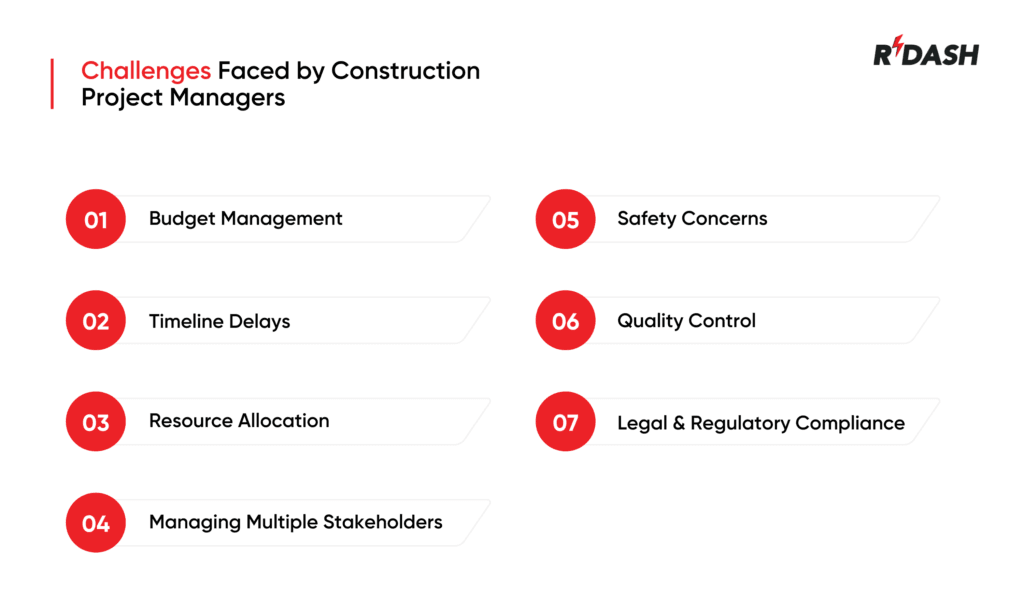
Budget Management
One of the biggest challenges for a CPM is staying within the project’s budget. Unexpected costs, delays, or changes in material prices can lead to overspending. A CPM must find ways to control costs while maintaining quality.
Timeline Delays
Construction projects are often subject to delays due to weather, labor shortages, or supply chain issues. A CPM must continuously track the project’s progress and adjust the timeline to reduce delays, keeping the project on course.
Resource Allocation
Ensuring that all resources, including workers, materials, and equipment, are available when needed can be difficult. A CPM must manage these resources efficiently to avoid project bottlenecks.
Managing Multiple Stakeholders
Construction projects often involve multiple parties, including clients, contractors, subcontractors, and local authorities. Managing communication and expectations among all stakeholders can be challenging.
Safety Concerns
Ensuring safety is a critical concern on construction sites. A CPM must ensure that all safety protocols are followed to prevent accidents and injuries. This includes providing training and ensuring compliance with regulations.
Quality Control
Maintaining high standards of quality throughout the project is a challenge for CPMs. They must make sure that tasks are completed properly and in compliance with building codes and regulations.This requires constant monitoring and inspection.
Legal and Regulatory Compliance
CPMs must stay up to date with local laws, building codes, and regulations. Failing to comply with these regulations can lead to delays, fines, or even legal issues.
What Kinds of Software Do Construction Project Managers Use?
Construction project managers rely on a variety of software tools to manage the complexities of construction projects. These tools are designed to streamline tasks, improve collaboration, and ensure that projects are completed on time and within budget. Project management software helps with creating and tracking schedules, managing resources, monitoring budgets, and facilitating communication among teams and stakeholders. Budgeting and cost management software ensure that the project stays financially on track, while document management tools organize and store important project documents like contracts and blueprints.
An example of a comprehensive solution in the construction industry is RDash. It provides project managers with tools to manage tasks, schedules, and budgets while improving communication and coordination across teams, ensuring that all aspects of the project are aligned and on track.
FAQs
What does a Construction Project Manager do?
A Construction Project Manager oversees and manages the construction process, ensuring that projects are completed on time, within budget, and according to specifications. They handle tasks like scheduling, budgeting, supervising the job site, and coordinating communication between teams.
Do you need a degree to be a Construction Project Manager?
While a degree in construction management, civil engineering, or a related field is helpful, it is not always required. Many CPMs start in entry-level construction roles and work their way up through experience.
How do Construction Project Managers stay on top of the project?
CPMs use project management software to track schedules, budgets, and progress. They also regularly meet with teams and stakeholders, assess risks, and make adjustments to keep the project on track.
How do you become a Construction Project Manager?
To become a CPM, you typically need a background in construction, engineering, or a related field. Gaining hands-on experience, earning certifications like Project Management Professional (PMP), and developing strong leadership and communication skills can help you advance in the role.
What industries do Construction Project Managers work in?
Construction Project Managers work in a variety of industries, including residential, commercial, industrial, and infrastructure construction. They can also work in specialized fields such as renovation, landscaping, or environmental projects.
What are the future prospects for Construction Project Managers?
The demand for skilled Construction Project Managers is expected to remain strong as the construction industry continues to grow. With experience and additional certifications, CPMs can advance to senior management roles or start their own construction firms.


